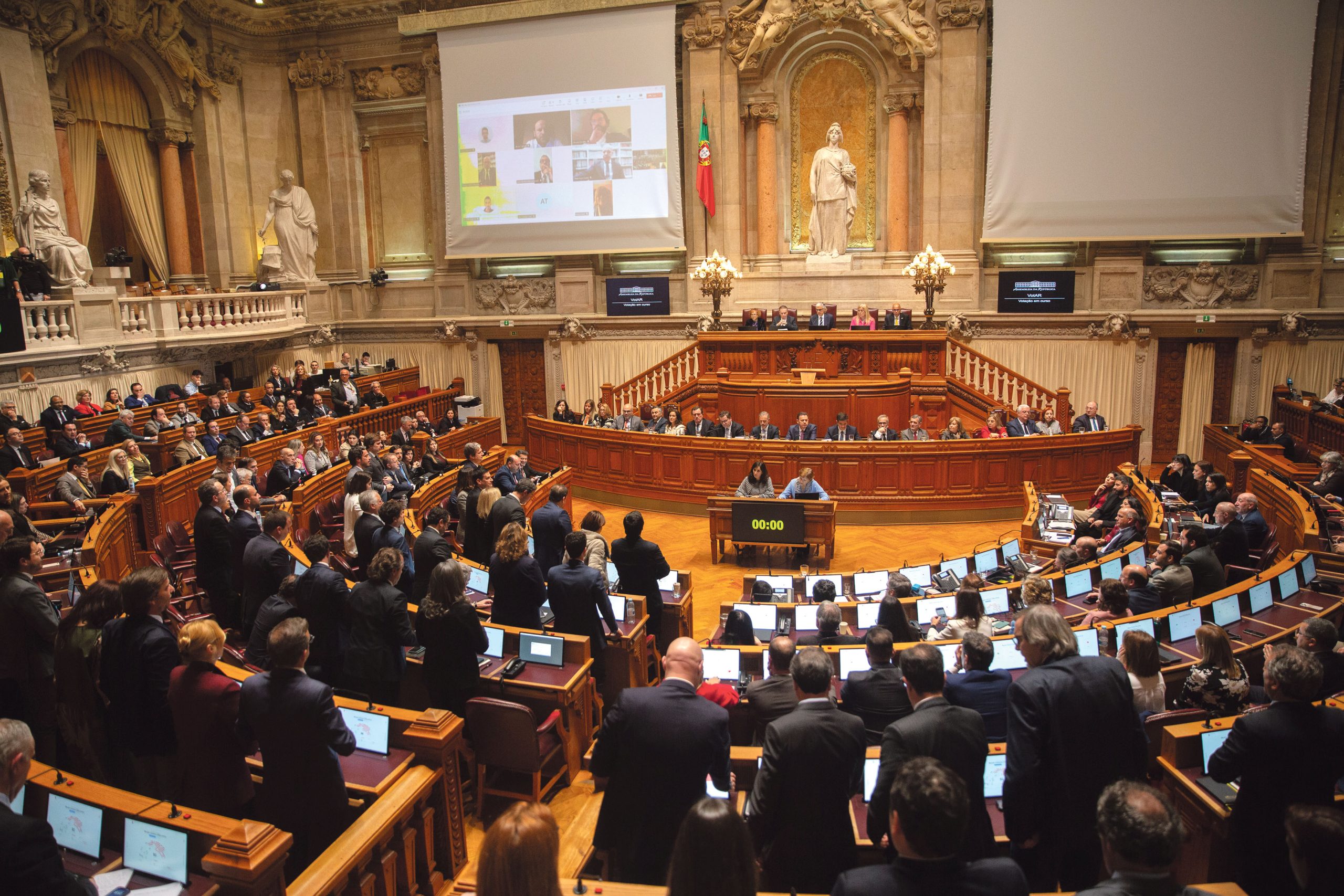Are tourism responsible for prices? There are those who say

Tourism is often pointed out as one of those responsible for increasing housing prices. Admittedly, the values have been beating records after records, but experts heard by the sunrise they move guilt away.
According to the latest figures of the idealist, rent a house costs up to 70% of what the Portuguese seek to pay, with Lisbon registering the largest imbalances. The municipality of Cascais leads this discrepancy within the Lisbon district, with the properties to be announced by an average of 2,700 euros, while the demand surrounds the 1,600 euros – a difference of 69%.
It follows Lisbon, with a difference of 50% (1,200 euros sought vs. 1,800 euros offered), in line with Mafra and Odivelas, both with average search values of a thousand euros compared to an offer of 1,500 euros.
The same scenario is repeated for those looking for home to buy. The idealist says that the values rose 7.4% in April compared to the same month of 2024 by settling at 2,817 euros per square meter, taking into account the median value. In relation to quarterly variation, prices rose 4.6%.
Given these climbs, some responsible for the sector heard by our newspaper say prices have increased by other factors, but not for tourism. For Ricardo Sousa, CEO of Century21 Portugal, there are factors that weigh much more in the price of houses than tourism. “One of them is the investment made by municipalities in urban regeneration, creating and improving public areas and equipment, an investment that improved people’s quality of life in many of the neighborhoods of Lisbon and Porto.
Of course, this investment also eventually enhanced the heritage of families who owned real estate in these zones, ”he told our newspaper, adding that it is also necessary to take into account“ private investment in urban rehabilitation, transforming buildings with few or no habitability conditions into more efficient buildings, with conditions of habitability for people with conditioned mobility, namely elderly. This transformation of the housing park valued the houses because we compare properties used with rehabilitated properties ».
Another factor that Ricardo Sousa defends as important in cities such as Lisbon and Porto is that they are « cities with geographical limitations, they are small territories where the value of land is naturally high ». And this must be added to « the fact that municipal master plans are out of date with the sociodemographic evolution of these two cities. »
Also Rui Torgal, CEO of the Era, removes the hypothesis that tourism is one of the main justifications for the increase. «The average price of houses in Portugal, in fact, continues to increase, but I do not believe that this climb has in tourism its main cause. But let’s go to parts, ”he begins by saying that » the main explanation for this uninterrupted growth of prices is related to the imbalance between the marked demand and the limited offer in the domestic market. » And shoot: « It’s a problem for two decades to this part, when there is practically no longer construction, and now it will take a few years to solve. »
In turn, Beatriz Rubio, CEO of Remax Portugal, is perennial: « Anywhere in the world, a greater demand for a good exerts more pressure on prices, stimulating increases. » However, “if in fact prices increase depends on several factors, namely the existence of alternatives or simply on the volume of supply. However, in the case of houses in Portugal, the main reason is the scarcity of supply, reinforced by the weak competition of the lease market ». Therefore, it argues that « increased tourism in Portugal in recent years has brought many investors and some interested families, but we must not forget that it is a specific demand for certain types of houses and in certain zones. »
Beatriz Rubio also explains that the increase in houses prices is due to ‘a set of factors, the main ones being the scarcity of supply, both in quantity and diversity, and the weak alternative of the lease market. In many areas of the country, there are not simply homes to lease, so the acquisition is the only way. That is, the increase in tourism and foreigners is far from the primary reason for prices climbs.
An opinion shared by Rui Torgal: « As far as tourism has created some pressure on real estate prices, especially in large urban centers, the main reason for what we have been watching for several years to this part is another and already mentioned above: we lack new construction in Portugal. »
It has impact but it is not the only culprit
At the sunrise, Rui Silva, guestready general director in Portugal, admits that « it is impossible to deny the impact of tourism on the real estate market, but it is equally simplistic to point out the finger only on local housing as a cause of the housing crisis in Portugal », stating that « the problem of housing is structural, accumulated over decades of lack of planning, insufficient public investment and inconsistent policies. »
The official argues that tourism and local accommodation (AL), « when well regulated, can and should be allied of urban appreciation and local economic dynamization », presenting as an example « the rehabilitation of vacant buildings that today welcome tourists and, tomorrow, may return to family houses and the small owner who, by exploring their home legally and professional, complements their income and contributes to the local economy. »
Still, Rui Silva acknowledges that the sector needs regulation, but will have to be balanced, based on data and differentiated by operator type. « Penalizing those who act professionally, transparently and responsible is a strategic error that paves the way to informality, » he says to our newspaper.
The official recalls that, in recent months, we have been assisted a growing movement of decentralization of AL, assigning more skills to municipalities. A trend that, in his view, can be considered positive, « as long as it is accompanied by clear criteria, national coherence and dialogue with operators. » And warns: « legislating in a hurry, without considering the diversity of the territories, can have the opposite effect to the desired », arguing that the real estate sector, like any market, responds to stimuli. “If we blindly limit the AL in areas where there are no real housing alternatives, we will not solve the problem, we just push the assets to less transparent or less efficient uses. Worse, we risk discouraging investment, locking rehabilitation and losing economic value.
Rui Silva does not hesitate: “The solution to housing cannot only undergo prohibitions. It needs a national plan that stimulates construction, rehabilites with incentives and increases the offer to residents with adequate tax and urban measures. Tourism must be part of the equation, but it cannot be the scapegoat and believes that « Portugal can be an example of hospitality and innovation, as long as it knows how to protect those who live here and who visit us. »
Also Eduardo Miranda, president of the association of local accommodation in Portugal has revealed to our newspaper that the activity has been seen as a scapegoat for the housing problem. «We have 72% of Al outside the major centers, in holiday homes in the coastal and mountain zone. Homes that never go to housing.
Even in Lisbon and Porto, a part are second housing, most of them are foreigners who never go to the lease market. What is left, almost 50%, are mostly T0 and T1 of micro and small entrepreneurs in historical areas, with numerous limitations that make them unviable for families, with small areas and whose value, taking into account investments, loans, will never be compatible with the public that may be interested in these T0 and T1, ”he says.
Municipalities with more power
To lock the proliferation of local accommodation to the detriment of long -term lease, the cameras have been fought the attribution of new licenses for this activity. One of these cases is the Lisbon Authority, which earlier this month decided to extend the suspension of new licenses for six months, while the municipality has a ratio between permanent housing and those establishments ‘equal to or greater than 5%’.
With the extension of the suspension of new licenses, « Lisbon safeguard the survey of the ban on new AL in 20 of its 24 parishes, until the new Municipal Regulation of the AL », explained the PS, which presented the proposal that was taken to votes in the municipality.





